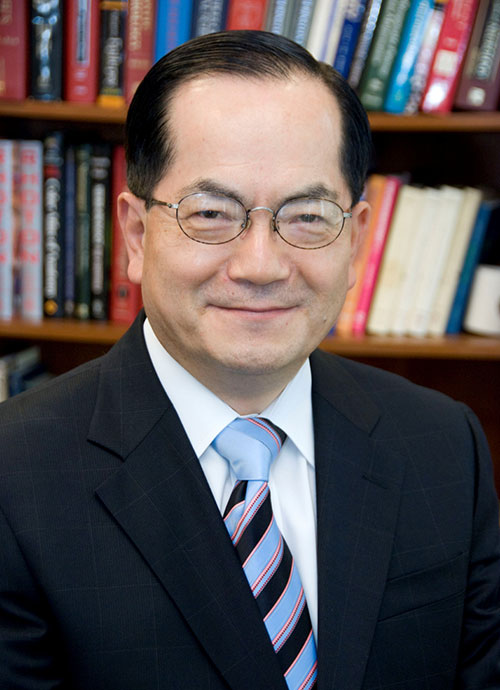Obituary: T.S. Park, professor of neurosurgery, 77
Celebrated neurosurgeon pioneered technique that restored movement for children with cerebral palsy

Park
Tae Sung (T.S.) Park, MD, a renowned neurosurgeon who pioneered a surgical technique that improved the lives of thousands of children worldwide, died Aug 31, 2024, while on vacation with his family in Mexico. He was 77.
After a remarkable career devoted to performing life-changing surgeries for children with cerebral palsy, Park retired from Washington University School of Medicine in St. Louis in June of this year. The beloved surgeon, who treated children at St. Louis Children’s Hospital, was the Margery Campbell Fort Professor of Neurological Surgery.
“Dr. Park changed the lives of countless patients,” said Gregory Zipfel, MD, the Ralph G. Dacey Distinguished Professor of Neurosurgery and head of the Department of Neurosurgery. “His brilliance in neurosurgery gave children the ability to walk, and he equipped the field with new techniques so other surgeons could do the same. He was beloved by the WashU community, and we have lost a true pioneer.”
Park joined the faculty in 1989. Over 35 years, he helped build the Division of Pediatric Neurosurgery into one of the best in the nation. Families traveled from around the world seeking his care for their children.
Park was renowned as a pioneer and, arguably, the foremost practitioner of selective dorsal rhizotomy (SDR). This surgical procedure reduces the muscle spasticity characteristic of cerebral palsy, a condition that can cause loss of muscle control and coordination. He performed the procedure 5,323 times, the last in May, the month before he retired. SDR surgeries enhance mobility for children who might otherwise require a wheelchair for the rest of their lives.
A Facebook account Park established exists as a testament to his dedication to his patients and the gratitude they have felt for him. At one point, it boasted more than 3,000 members from 80-plus countries. Park took joy in seeing his patients thrive. For example, one posted video captured him at a party held in his honor by former patients in New Zealand. He is shown gleefully dancing with children who might not otherwise have been able to walk.
“His passing was a shock to us all, but I find some solace in knowing that his legacy of compassionate care and unparalleled mentorship will live on in the hearts and minds of all who knew him,” Zipfel said.
A native of South Korea, Park began his medical studies at the Yonsei University College of Medicine, where he also completed a neurosurgery residency. He completed further training at the University of Virginia and Ohio State University as well as research fellowships in pediatric neurosurgery at Harvard Medical School and the University of Toronto. He was on the faculty at the University of Southern California School of Medicine and the University of Virginia School of Medicine before he was recruited to WashU Medicine.
Park was deeply respected by his peers and received numerous awards over the course of his career. These include the 1999 Javits Neuroscience Investigator Award for exceptional researchers, and the 2008 H. Richard Winn, MD, Prize for Meritorious Research from the Society of Neurological Surgeons.
He was an active researcher, with a focus on vascular injuries in newborns’ brains. He also studied syringomyelia, a blockage of the flow of cerebral spinal fluid that can damage nerves in the spinal cord.
In his free time, Park was an avid golfer. He was also a competitive ballroom dancer, a pastime he credited for the precision and physical control he brought to bear so effectively in the operating room.
Park is survived by his wife, Meeaeng; his children, Thomas and Mina Park; two grandchildren, his brother, two sisters and several other relatives.
A memorial service is planned for Jan. 10, 2025, in St. Louis.






